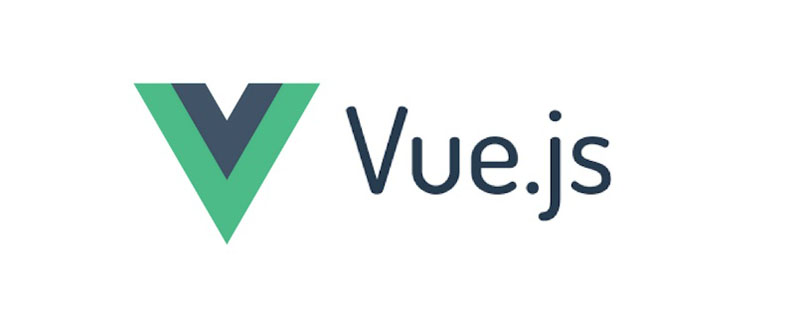
vue.js Family Bucket is the core component of the complete vue project, including vue-router, vuex, vue-resource, vue-cli and sass styles. vue-cli is a scaffolding for quickly building single-page applications.

vue family bucket:
Includes vue-router, vuex, vue-resource, plus build tools vue-cli, sass Styles, these are the core components of a complete Vue project.
(Learning video sharing: javascript video tutorial)
To summarize:
1. Project building tool; 2. Routing; 3. Status Management; 4. http request tool.
Detailed introduction:
Vue’s two core ideas: componentization and data-driven.
Componentization: Split the whole into reusable individuals;
Data-driven: Directly affect the BOM display through data changes to avoid DOM operations.
1. Vue-cli is the scaffolding to quickly build this single-page application,
# 全局安装 vue-cli $ npm install --global vue-cli # 创建一个基于 webpack 模板的新项目 $ vue init webpack my-project # 安装依赖,走你 $ cd my-project $ npm install $ npm run dev
2. vue-router
Installation:
npm installvue-router
If To use it in a modular project, you must explicitly install the routing function through Vue.use():
import Vue from'vue' import VueRouter from'vue-router' Vue.use(VueRouter)
Also note that during use, you can use the transition attribute of vue to render the effect of switching pages.
3. vuex
The state management of vuex specially developed for vue.js applications can be understood as global data management. Vuex is mainly composed of five parts: state action, mutation, getters, and mudle.
The usage process is: The above four parts can be directly called in the component. In addition to mudle,
1, state
is similar to the data of the vue object, used to store data and status. The stored data is responsive. If the data changes, the components that rely on the data will also change accordingly.
Examples of two ways to obtain state:
(1)
store.getters['getRateUserInfo']
(2)
...mapGetters({
UserInfo: 'login/UserInfo', // 用户信息
menuList: 'getMenuList', // approve 运价审批
RateUserInfo: 'getRateUserInfo' // Rate用户信息
})Note: You can use mapState to combine the global state and Getters are mapped to the computed properties of the current component.
2. Actions
Action is triggered through the store.dispatch method: action supports asynchronous calls (you can call api), mutations only support operation synchronization, and actions submit mutations, not direct changes. state.
For example:
const store = new Vuex.Store({
state: {
count: 0
},
mutations: {
increment (state) {
state.count++
}
},
actions: {
increment (context) {
context.commit('increment')
}
}
})The Action function accepts a context object with the same methods and properties as the store instance, so you can call context.commit to submit a mutation, or pass context.state and context. getters to obtain state and getters.
In practice, we often use ES2015 parameter destructuring to simplify the code (especially when we need to call commit many times):
actions:{
increment ({ commit }){
commit('increment')
}
}3, mutation
Each mutation has a string event type (type) and a callback function (handler). This callback function is where we actually make the state changes, and it accepts state as the first parameter.
4. Getters
Vuex allows us to define "getters" in the store (which can be considered as computed properties of the store). Just like computed properties, the return value of a getter will be cached according to its dependencies, and will only be recalculated when its dependency values change
const getters = {
getRateInitData: state => state.rateInitData,
getchooseRateObj: state => state.chooseRateObj,
getSearchRateParams: state => state.searchRateParams,
getSearchRateResult: state => state.searchRateResult,
getRateUserInfo: state => state.RateUserInfo,
getMenuList: state => state.menuList,
getRateQueryParams: state => state.rateQueryParams,
getRateQueryResult: state => state.rateQueryResult,
getCheckRateDetailParams: state => state.checkRateDetailParams,
getReferenceCondition: state => state.referenceCondition,
getWaitApprovalParams: state => state.waitApprovalParams
}mapGetters Helper Function
The mapGetters helper function just maps the getters in the store to local computed properties.
4. axios
axios is an http request package. Vue official website recommends using axios for http calls.
Installation:
npm install axios --save
Example:
(1) Send a GET request
//通过给定的ID来发送请求
axios.get('/user?ID=12345')
.then(function(response){
console.log(response);
})
.catch(function(err){
console.log(err);
});
//以上请求也可以通过这种方式来发送
axios.get('/user',{
params:{
ID:12345
}
})
.then(function(response){
console.log(response);
})
.catch(function(err){
console.log(err);
});(2) Send a POST request
axios.post('/user',{
firstName:'Fred',
lastName:'Flintstone'
})
.then(function(res){
console.log(res);
})
.catch(function(err){
console.log(err);
});Related recommendations: vue.js tutorial
The above is the detailed content of What is vue.js family bucket?. For more information, please follow other related articles on the PHP Chinese website!